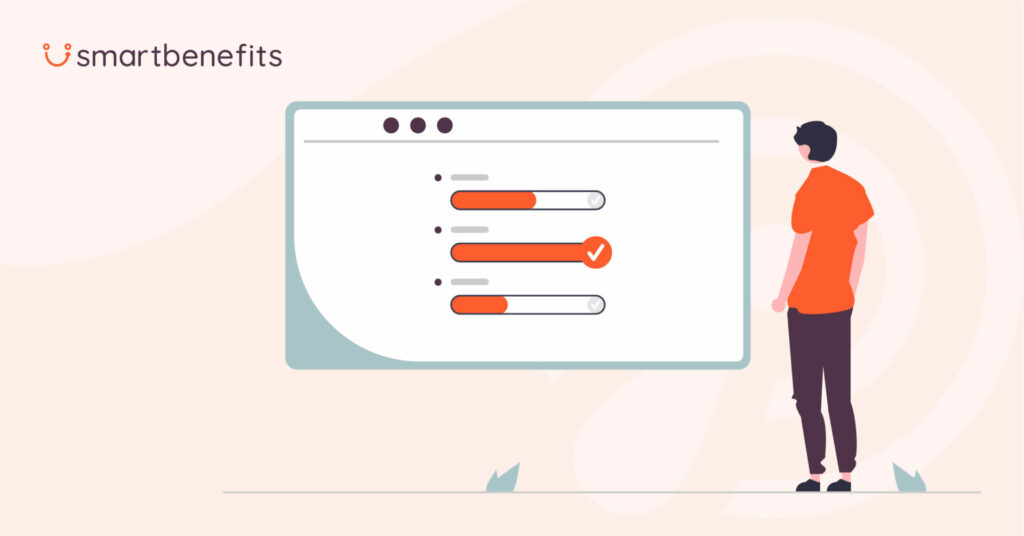As working professionals, we have all seen situations in which some candidates are successful in every step of the interview process, and the job seems to be almost certain until some testing is requested.
Personality tests are now a normal part of the recruitment process. Research shows that an employee in a role that does not suit his/her character traits can cause lower engagement.
Low levels of employee engagement can result in as much as 20% lower productivity and 40% higher turnover rates.
The hiring process is an expensive and time-consuming activity. Hiring employees with the wrong job profile can result in an endless cycle of interviewing and selecting candidates.
Defining Personality Tests
Employers or recruiters use a personality test to help them filter through candidates and find individuals with character traits that match their companies.
Personality tests are designed to unveil certain aspects of candidates’ personalities and assess whether they will perform successfully in specific positions.
Specialized positions like computer engineers or data analysts have always had role-specific tests as an expected part of the selection process.
Personality tests are a new addition to the selection process for mid-level and above candidates. They are becoming popular as they provide employers with a more specific understanding of the candidates’ behaviors, skills, and characteristics.
To save valuable resources like time, effort, and money and to prevent a drop in productivity, it is in the best interest of employers to vet candidates for long-term employment.
The Case for Personality Tests:
They Provide Key Information
Bringing people into companies as new employees requires a lot of resources. Getting more information and insights from candidates is key to making better hiring decisions. Personality Tests are specifically made to help filter your options and select the suitable candidates.
Personality tests can reveal important aspects of a candidate’s personality. These can directly impact the cultural fit, the eligibility for specific posts, and team performance. They also help identify what motivates them, their thoughts, communication preferences, and attitudes.
They are Convenient
With remote work gaining traction internationally, personality tests can be carried out through online channels and processed instantaneously.
You can get the test results within a few minutes in your comfort at home. This helps HR managers speed up their recruiting process and ensure that the candidates who continue the process match the company and its culture.
What Can Personality Tell About Candidates?
How a Candidate Processes Information
Personality tests can help identify how a candidate acquires new understanding, knowledge, behaviors, skills, values, attitudes, and preferences.
An employee’s ability to learn and the eagerness to acquire new knowledge are very important to every business and organization.
If a candidate’s attitude or processing of information is not favorable, is not a suitable match, or is not willing to learn new knowledge, that person can fail to grow as an employee.
The result would be disengagement, and the company’s productivity could be affected.
A Candidate’s Decision-Making Skills
Decision-making skills are a crucial trait for all employees. Sooner or later, employees face challenges in their jobs and can be forced to make tough decisions.
This will put them under a lot of pressure. Some people tend to lose control of their emotions when things are challenging or when forced into a corner.
An individual who can control themselves while rationally analyzing the pros and cons of multiple decisions will be able to perform well and support a company in achieving its goals.
By knowing how candidates would make decisions under difficult circumstances, employers would be able to pick the best talents for their companies.
A Candidate’s Problem-solving Skills
Like decision-making, problem-solving is an essential skill for employees. Employees must be able to move towards a solution. Personality tests can identify candidates who have the ability to utilize generic or unique methods to find the best approach to solve complex problems.
A Candidate’s Productivity And Time Management Skills
When the majority of staff can organize their tasks and manage time efficiently, there will be better organizational performance and increased productivity for a company overall.
Personality tests can reveal which candidate can set clear goals while maintaining focus and managing their time daily.
Employers can make better decisions and choose the right candidate, and their talent for organizational skills and time management will help increase a company’s productivity.
The Limitations of Personality Tests:
Along with their benefits, personality tests also have several limitations that raise questions about their effectiveness in recruitment. Critics claim that these tests may not always accurately predict job performance or fit due to various factors:
Response Validity:
Candidates may not always respond honestly to questions, consciously or unconsciously, leading to biased results.
Situational Factors:
Personality traits can vary depending on the situation, and a test taken in a specific context may not reflect how an individual would behave in a work setting.
Lack of Context:
Personality tests often provide a snapshot of an individual’s traits without bearing in mind the broader context of their skills, experiences, and motivations.
Overemphasis on Traits:
Placing too much emphasis on personality traits alone may overlook other important factors that contribute to job performance, such as skills, knowledge, and work ethic.
Balancing Objectivity and Subjectivity:
While personality tests can offer valuable insights, they should be used as part of a comprehensive recruitment process that includes other assessments, interviews, and evaluations. Combining quantitative data from tests with qualitative insights from interviews can help create a more holistic view of candidates, enabling recruiters to make better-informed decisions.
Moreover, it’s essential to use scientifically validated tests and apply them ethically and transparently. Candidates should be informed about the test’s purpose and how the results will be used, and their privacy and confidentiality should be respected.
In conclusion, personality tests can be a helpful tool in the recruitment process, as they give valuable insights into candidates’ traits and behaviors. However, they should be used judiciously and as part of a broader assessment strategy to ensure that they are effective in identifying the suitable candidates for a role. By balancing objectivity with subjectivity and considering the limitations of these tests, organizations can make more informed and fairer hiring decisions.

Sadia Zaheer holds a Masters in Business Administration from IBA, Karachi. After working in several financial institutions in Client Management, Corporate Lending, Islamic Banking and Product Management she jumped careers to pursue a career in writing.
She is a Finance, Business and HR Development writer with four years of experience. She reads a lot and takes care of her multiple cats to remain calm.



